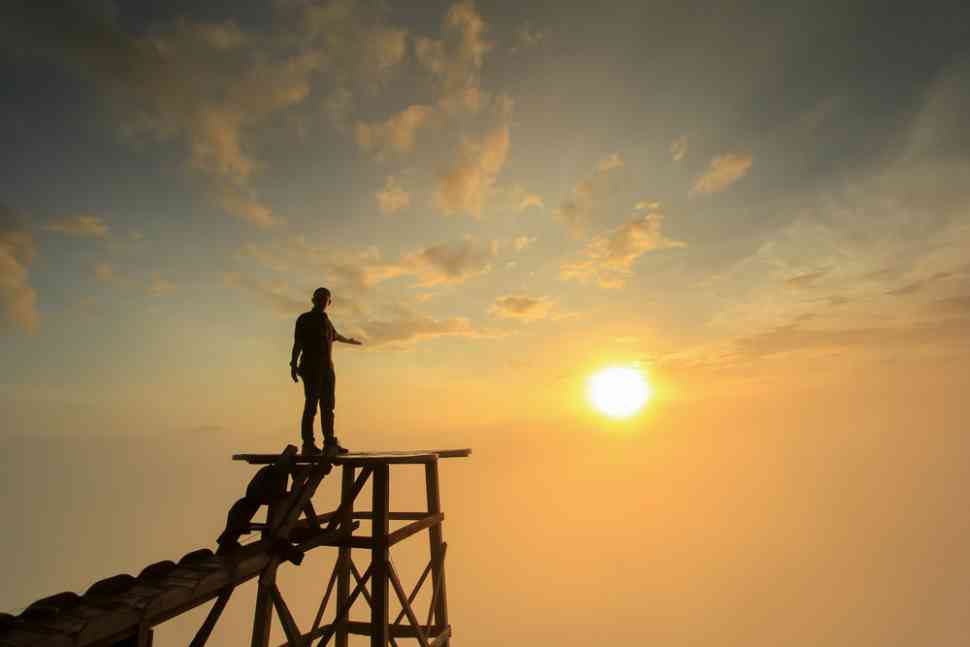The Role of Alternatives and Obstacles in People’s Evolution

Have you ever wondered how difficulties affect us and whether they exist for a reason? The exciting stories of two men who showed alternative ways for success are being presented with the hope of understanding how our brain works and what defines success in our small little world.
A guy with broken legs ends up climbing the highest mountain in the world
The reality is that we all have mental blocks, but what happens when we have real obstacles? It turns out that real problems are not as challenging as the ones we create with our minds. Proof of that is given by the true story of a guy who fell from an airplane at 14.000 feet only to realize his parachute had a tear. Unfortunately, in this case, there was nothing he could do. He fell to the ground, broke his feet, and lost consciousness. When he woke up at the hospital, he was told that he would never be able to walk again in his life. Finding it hard to settle down for that frightening future, he made it his mental and physical goal to climb Everest. To make the long story short, 18 months later, he accomplished his goal and became a source of inspiration for thousands of people who find it hard to believe they can make it.
How alternatives can decrease our chances for success
What if we are out of alternatives and the future seems disappointing? A promising future with a happy ending is lovely but cannot always happen. In fact, in some cases, it may even be a problem. The existence of a challenge in the story of our lives is essential to keep us going. History is full of success stories of people who tried hard and made it when they had no reason to be optimistic. Somehow, however, we believe this is the exception. The following story gives an example of how things can turn out if we try to cause this misery that is accompanied by a lack of alternatives.
The story of Captain Hernan Cortes and how he burned down his own ships
Captain Hernan Cortes landed in Veracruz in 1519. After reaching the land, he ordered his crew to burn down the ships. The principle he supported was that we would never go backward. They were there to stay. There was not any secondary option. If the ships were available, that would trouble everybody’s minds in case they met something challenging. They would always have to go back and prefer the calmness of their comfort zone back home. The rest of the story for the central part of Latin America is known. The country that hosts Veracruz today, no other than Mexico, got to learn about the European civilization because Herman Cortes decided to stay there.
The conclusion is less complex than you imagine
It turns out it is a combination of the alternatives and obstacles we have to face to finally make it. Besides, what is an alternative? It is just a way to overcome a real obstacle that appears along the way. Sometimes it may be more useful to create an obstacle to find our way to more productive approaches. If obstacles can act as a motivation or a condition that can make us become determined, why should we not create them on our own? If that sounds weird, let us reverse the question. Aren’t there any obstacles that exist in our lives and that we are responsible for them? Surely there are. If we are ok with putting up with them and have not yet found the time to deal with them, why wouldn’t we create different types of deadends that, instead of holding us back, will make us better? Giving ourselves a choice is not always as brilliant as it sounds. Perhaps the answer is that sometimes you just have to not have another way to walk in order to walk on the right path.
Have you read?
Business Cooperatives Giving Small Farmers a Voice by Jane Marsh.
A Guide To Selective Laser Sintering Technology.
The future of commercial real estate in North India by Abhishek Srivastava.
How Business Leaders Can Navigate Brand Reputation in the New World of #Deinfluencing by Eric Yaverbaum.
Unlock Your Recruiting Potential with an Email Finder Tool.
Bring the best of the CEOWORLD magazine's global journalism to audiences in the United States and around the world. - Add CEOWORLD magazine to your Google News feed.
Follow CEOWORLD magazine headlines on: Google News, LinkedIn, Twitter, and Facebook.
Copyright 2025 The CEOWORLD magazine. All rights reserved. This material (and any extract from it) must not be copied, redistributed or placed on any website, without CEOWORLD magazine' prior written consent. For media queries, please contact: info@ceoworld.biz








